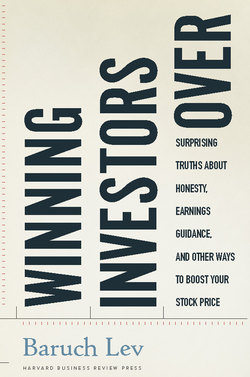Читать книгу Winning Investors Over - Baruch Lev - Страница 34
На сайте Литреса книга снята с продажи.
CMS Energy: Brag-a-Watts
ОглавлениеCMS Energy, an integrated energy company, overstated its revenues in 2000 and 2001 by $1.0 billion (10 percent of revenues) and $4.2 billion (36 percent of revenues), respectively.24 This manipulation, however, didn’t affect earnings because it entailed round-trip trades with counterparties, simultaneously purchasing and selling electric power or natural gas in identical volumes and prices, with no deliveries in sight. The purpose of these sham transactions, which were quite popular in the late 1990s and early 2000s in the energy sector, was, according to the SEC, “to elevate MS & T [CMS’s trading division] into the top-20 tier (“top 20”) of the industry publication volume ranking,” expecting that the top-tier status would enhance CMS’s business. As in the Coca-Cola case, the end-of-day contrition was halfhearted. When CMS’s revenues were restated downward on March 29, 2002, to eliminate the effect of the round-trip trades, the explanation CMS gave investors was materially misleading, according to the SEC, because it did not state that the transactions causing the restatement—dubbed in the industry as “brag-a-watts”—lacked economic substance. Nor was the full magnitude of the round-trip transactions—$5.2 billion—properly disclosed.
Both the Charter and CMS cases demonstrate the wide range of manipulated items in addition to earnings and sales, like subscriber growth or oil reserves,25 and the varied target audiences, like customers and suppliers, in addition to investors.
